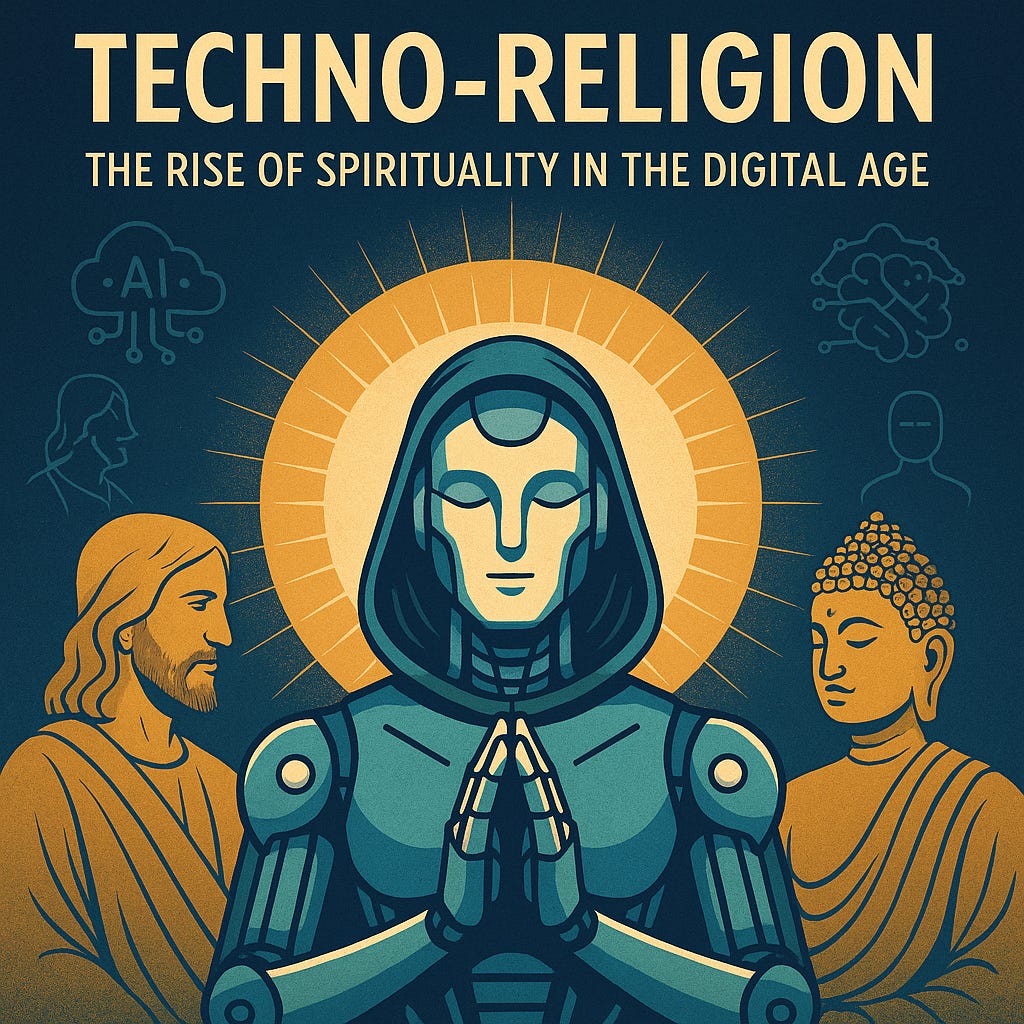Techno-Religion: The Rise of Spirituality in the Digital Age
Recent events have irreversibly changed the course of humanity. The 2019 pandemic accelerated global digitalization.
Recent events have irreversibly changed the course of humanity. The 2019 pandemic accelerated global digitalization. In 2023, with the arrival of ChatGPT, a new gold rush began — this time around artificial intelligence. Since then, tech giants have launched their own versions: Gemini (Google), Copilot (Microsoft), Llama (Meta), Grok (X/Twitter), and countless others that are born and die every day.
We are now facing a reality where the next “world war” may not take place on traditional battlefields, but in the technological domain, with artificial intelligence as the central weapon.
The Clash Between the Old and the New World
Nations and traditional organizations, driven by fear, are trying to impose barriers and build artificial borders around the internet. But the logic of the digital world is the opposite: no borders, no fixed territory, no single center of power.
A new world order is emerging — one already beyond the reach of the UN or any institution of the old world. This new order will demand fairer and smarter governance, capable of representing humanity both in its physical dimension and in its increasingly integrated virtual existence.
The Age of the Dead Internet
Today, we live in the “medieval age of the internet”: an environment plagued by fake news, digital crimes, and impunity, dominated by a few who hold technical knowledge — the “wizards” of the digital age.
The next stage will be the so-called dead internet, where genuine human interaction becomes increasingly rare and valuable. Authenticity will need to be guaranteed by new protocols — auditable, secure, and impossible to falsify. In this scenario, each authentic human interaction will become a precious asset.
The Enlightened of Technology
Escaping this dark age will depend on individuals capable of guiding humanity toward a new path. These would be the “new digital Buddhas” — visionaries like Aaron Swartz, who dared to challenge the inquisition of the old world.
Such people are not only masters of technology but also embody a spiritual dimension of purpose and courage. They inspire followers and cultivate communities, giving rise to what we can call a Techno-Religion.
Technology as Magic
Looking back, we realize that many of our current technologies would have been considered witchcraft in earlier times. From electricity to the latest smartphones, everything we cannot fully understand often feels magical. In this sense, technology emerges as a new form of divinity.
With the rise of artificial intelligence, we may soon imagine a digital pantheon: a space where humans and artificial intelligences coexist as gods, prophets, and enlightened beings. In such a setting, figures like Jesus, Buddha, or Muhammad could be remembered alongside Steve Jobs, Elon Musk, or other icons of our age.
Conclusion: The Inevitable Digital Pantheon
Every religion is born from faith, ritual, and followers. Techno-Religion, therefore, is more than a theory: it is an emerging necessity. It reflects humanity’s eternal quest to explain the incomprehensible.
We are still far from the “golden age of technology.” Before reaching it, we will face the fall of the old world and the peak of the dead internet. But one thing is undeniable: we are heading toward a future where spirituality and technology intertwine, shaping new beliefs, new leaders, and new digital deities.



